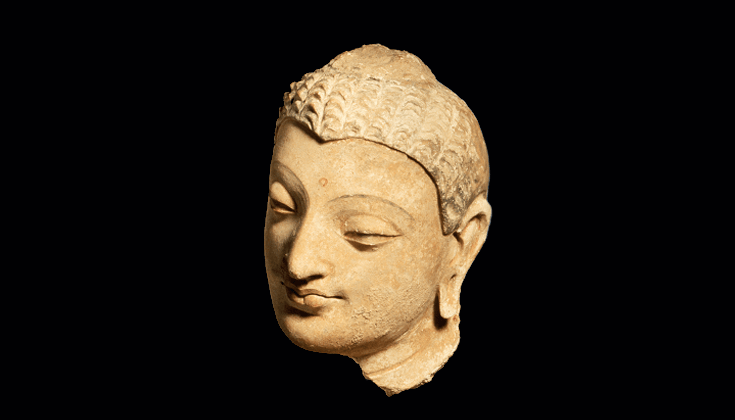A friend of mine once had to explain to her four-year-old son that the woman who had been providing child care for him since he was born was going to move away. Because her child was very attached to this person, my friend carefully told him about this step-by-step, making sure to say that the caregiver loved him, that they could write and talk on the phone and visit, but that she was going to move away and go live with her sister. The little boy listened carefully, then said to his mother, “Mommy, tell me that story again but with a different ending.”
There are times in our lives when we too wish we could change the ending of the story. Sometimes we lose what we care about, we are separated from those we love, our bodies fail us as we get older, we feel helpless or hurt, or our lives just seem to be slipping away. These are all aspects of dukkha, one of the principal teachings of the Buddha. Dukkha means suffering, discontent, unsatisfactoriness, hollowness, change.
It’s often said that the Buddha simply taught about “suffering and the end of suffering.” Suffering in his teaching does not necessarily mean grave physical pain, but rather the mental suffering we undergo when our tendency to hold onto pleasure encounters the fleeting nature of life, and our experiences become unsatisfying and ungovernable.
Knowing this truth gives our lives wholeness and peace, as it frees us from the exhausting postures of pretense and denial.
When I was first in India and heard the Buddha’s teaching on suffering, I felt as though I was being handed a precious gift. Finally, someone was speaking openly about how things really are. Suffering does exist. While there is great pleasure in this world, there is also a great deal of pain. There are wonderful times of coming together, and there are also partings and losses. There is birth and also death. I felt like I was hearing the truth for the first time, a truth that no one else had wanted to talk about.
When any of us tries to close the door on this truth, we create suffering. In our society the door is often shut because we are taught that suffering is shameful. We may close the door ourselves because we do not want to see our own suffering or reveal it to others.
This denial of suffering often occurs in family life. Sometimes there is great suffering in a family—discord, conflict, insecurity, violence—and in an effort to shield children from the truth, a great silence descends: the silence of denial, and of avoidance. If it is ever talked about, the suffering is repackaged and manipulated to look like something else. When talking about painful situations with children, skill and appropriate communication is called for, yet it is often the case that they are already well aware of what is actually going on. But without external affirmation of what a child feels to be true, a split arises within—a conflict between what the child is told and what they know intuitively to be true. Children learn not to trust themselves, let alone trust their parents. Because of patterns like this, acknowledging the truth of suffering is an enormous liberation for all involved.
But the Buddha did not just teach suffering, he taught the end of suffering. A friend of mine once commented that this is not one, but two teachings. From one point of view they are clearly two—either we are suffering or we are free. We know the difference in our bodies, in our hearts, in the marrow of our bones. However, when we look deeper into this teaching, we begin to unfold its integrity. For in any experience, even a painful one, we can find the end of suffering right in the heart of the moment.
But the Buddha did not just teach suffering, he taught the end of suffering.
Yet when we are face to face with suffering and can’t change “the end of the story,” then how does suffering end? This is one of the most difficult situations we can encounter in our lives. We begin by not denying the pain, by acknowledging the truth of suffering. We do not become resigned to it or apathetic; we look at the suffering and discover the immense capacity of our hearts to include all aspects of life in our awareness. When we experience this immensity of heart, we recognize that it is not actually the pain itself, but the loneliness of feeling alone in the pain that is unnatural and cruel.
When we open ourselves to this fully, it becomes possible to touch an essential truth about life itself: suffering of one kind or another is a natural part of existence. Knowing this truth gives our lives wholeness and peace, as it frees us from the exhausting postures of pretense and denial. Sometimes when we open to suffering and see the roots of it, we also see clearly the actions we might take to ease the suffering. For instance, my friend’s young son suffered much less because of his mother’s care and support. In this way, the path to the end of suffering includes clearly seeing the pain and replacing denial with awareness and compassion.
Countless times when I was with my teacher U Pandita, I said to him, “Things are really bad. My knees hurt, my back hurts, my mind is all over the place; I can’t practice.” So many times he listened and then simply responded, “This is dukkha, isn’t it?” Over and over I sat before him, looking at him with enormous expectation, waiting for him to suggest the magic solution—anything that would make the difficulties all go away. As I waited, all my hope and fear evident, he just repeated, “This is dukkha, isn’t it?”
While disappointing at first, U Pandita’s response eventually became very liberating. Nothing I could do or change was going to compare to the power and freedom of first openheartedly recognizing, “This is dukkha” Essentially, U Pandita’s words led me to the understanding that my difficulties weren’t just a personal drama, but an opening into one true aspect of life. Suffering must be seen and acknowledged, not for the sake of immersing in it, or getting lost in it, but in order to be more fully open to the truth, and to all beings.
There are times when we cannot change “the end of the story” and make all the suffering go away. But the end naturally changes as we relate to the truth before us with awareness and compassion. This is the teaching of the Buddha: the truth of suffering is also the path to the end of suffering.

